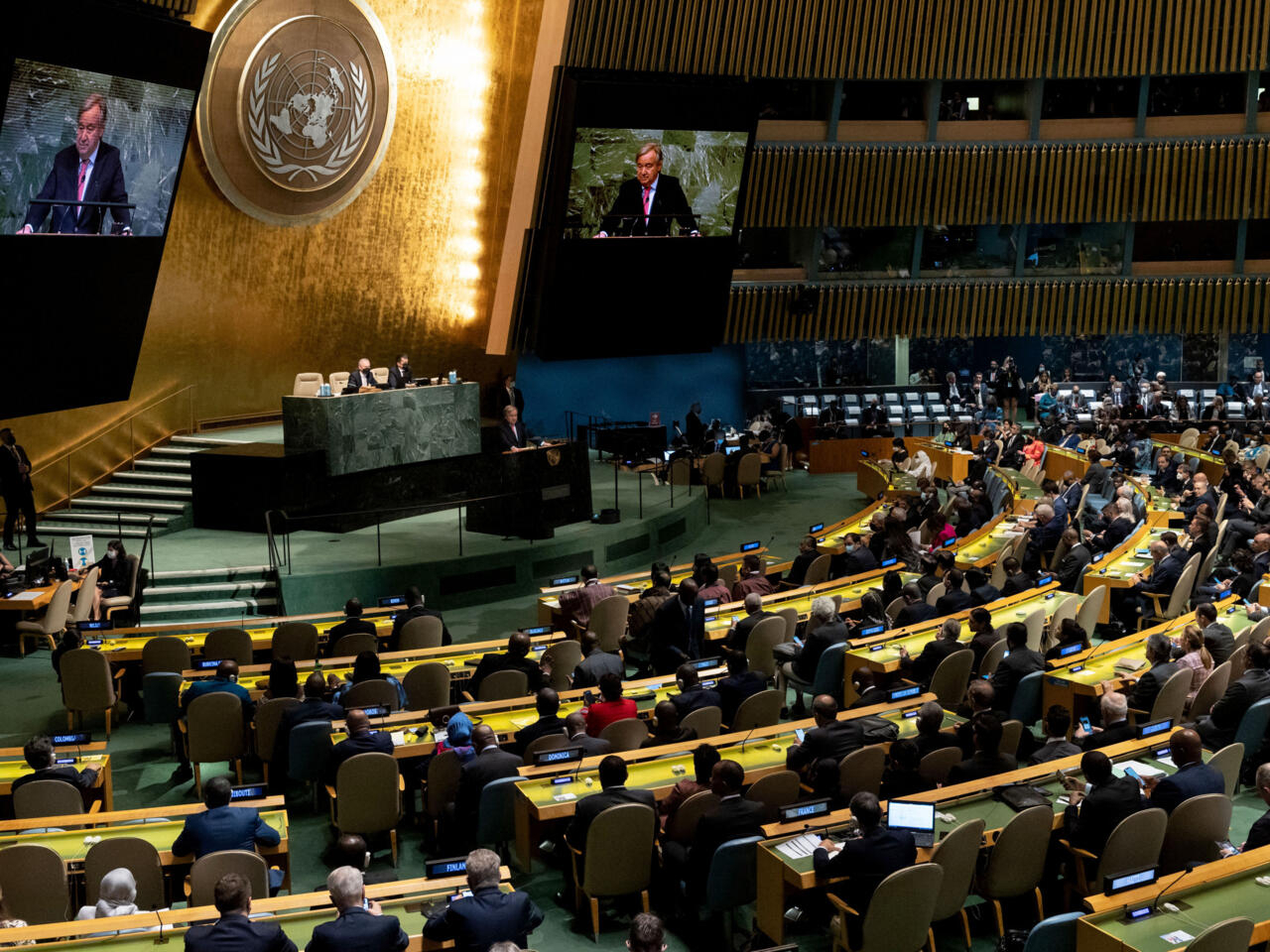One year after Moscow invaded its neighbor, Ukraine. The U.N. General Assembly will vote this week. On a resolution emphasizing the need for a lasting peace in that country.
The assembly’s extraordinary emergency session, which will begin Wednesday afternoon and last through Thursday. This will include a vote on the text, which was written by Ukraine following consultation with allies and discussions with interested nations.
The urgent need for “a comprehensive, just and enduring peace in keeping with the values of the Charter of the United Nations” is emphasized. Furthermore, members of the UN and other international organizations are urged to assist in this endeavor.
Also, the resolution calls for an end to hostilities and the removal of Russian armed personnel. From Ukrainian territory “within its internationally recognized borders,” which includes areas that Russia asserts it has seized.
A European official with knowledge of the negotiations claimed that it was intentional to use. The phrase “cessation of hostilities” rather than “cease-fire.”
The term, in our opinion, is much harsher, the diplomat remarked. “A cease-fire could be a break in the fighting that enables one side to regroup and get ready for another assault.”
A pause of hostilities, according to the diplomat, might establish the foundation for a future diplomatic resolution. And refers to a more long-term arrangement than simply disarming the firearms.
The resolution, which has the support of more than 60 nations but is not legally binding, bears the moral authority of the whole world community. The goal of Ukraine and its allies is to secure a resounding victory among the 193 member states. (Only member states from 191 will be able to cast ballots. Lebanon and Venezuela are far behind on their payments and temporarily lost their right to vote.
Russia’s invasion and subsequent effort at annexing areas of Ukraine were both strongly denounced in resolutions. Throughout the previous year, with 141 and 143 countries, respectively, denouncing and rejecting these actions with just a small number of nations siding with Moscow. With this wording, diplomats said they want to achieve a similar result and demonstrate ongoing global support for Kiev.
But it will eventually be challenging to convince Moscow to discuss peace.
In order to discuss “lessons learned” from the Minsk agreements, which were supposed to de-escalate tensions. Between the neighbors eight years ago but clearly failed. Russian ambassador Vassily Nebenzia called a meeting of the U.N. Security Council on Friday.
In his words, Volodymyr Zelenskyy, the president of Ukraine, “built a neo-Nazi nationalist beehive at our borders” despite having been elected on pledges of peace and discussion.
Nebenzia claimed that the U.N. secretary-general was adopting a “ostrich position” by echoing Western criticism of Moscow while never criticizing Kyiv. Despite the General Assembly resolution expressing “strong support” for his efforts to promote an end to the conflict.
According to Crisis Group’s Gowan, Russia expects that some significant non-Western nations will request discussions without conditions. As this would benefit Moscow.
According to diplomats, it’s crucial that the resolution expresses the cost of the conflict outside of Ukraine and contains wording on energy and food security. The Black Sea Grain Initiative is up for renewal in a month, and the developing world wants to see it stay in place.
The resolution lays out “the ideas and framework that will motivate our efforts in the coming months,” according to the European ambassador.
The draft resolution has language on the necessity of holding war criminals accountable. Ukraine is debating whether to pursue a different General Assembly resolution this year. Regarding the creation of a unique international court to hold the Russian government accountable for its invasion, which constitutes an act of aggression.
A commission of inquiry was established by the U.N. Human Rights Council as well. And it was given the charge of looking into all human rights offenses related to the Russian invasion. In the upcoming months, their second report is due.
The human rights status of prisoners of war and the kidnapping of Ukrainian children by Russia will be the main topics of discussion. The foreign minister of Ukraine opens the meeting on Wednesday morning.
Several foreign ministers are anticipated to attend a Security Council meeting on Friday. However, the actual anniversary of Russia’s total invasion, where U.N. Secretary-General Antonio Guterres will give a briefing.
Over 8 million Ukrainians have fled the country in search of safety, and nearly 6.5 million more have died as a result of the bloody conflict.















